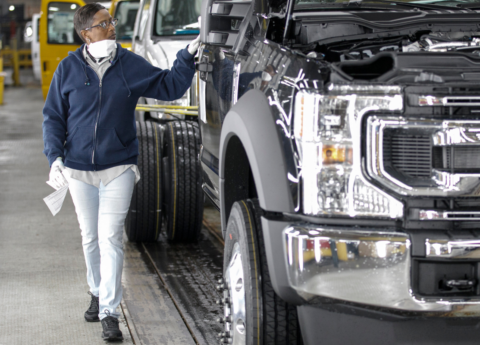Despite misleading explanations from “right-to-work” (RTW) advocates, the point of such laws is straightforward: weaken workers’ ability to band together through unions for better job conditions and pay. The law does so by creating “free riders” who benefit from union representation but don’t pay toward the associated costs, leaving unions with less money to negotiate better contracts and represent workers in grievances against employers.
(See here for more on what RTW does and does not do. For instance, it does not grow jobs.)
In order to play down the financial toll of covering free riders, RTW advocates have claimed unions in Kentucky spend very little of their resources on the “representational activities” that benefit non-paying workers as well as dues-paying members. For example, the Heritage Foundation cites anecdotal evidence that the United Auto Workers Local 2164 in Bowling Green spent two percent of its budget on representational activities in 2013. But a search on the United States Department of Labor website shows that figure is on the low end. On the high end, representational activities accounted for a full half of the Boilermakers’ budget in Elizabethtown, AFL-CIO Lodge 40. For all 65 Kentucky unions that submitted form LM-2s in 2013 which detail disbursements, the average expenditure was 23 percent. Whether a union spends two, 23 or 50 percent, it’s disingenuous for those representing business interests to suggest the costs are inconsequential to a union’s bottom line.
An even more misleading argument in defense of RTW laws is that unions could avoid the extra cost of covering free riders by opting not to be the “exclusive bargaining representative.” The catch is that doing so would completely strip a union of its legally-backed bargaining power—a privilege granted by federal law in exchange for the responsibility of representing all workers equally, members or not. Under exclusive status (which is granted when a majority of workers elect the union in a secret ballot), unions cannot negotiate separate contracts benefitting members over non-paying employees nor can they supply substandard legal services. In turn, employers must negotiate with them.
Employers are not required to bargain, on the other hand, with members-only unions. In theory, they could do so on a voluntary basis, but in reality, that’s unlikely. To RTW advocates, this union-weakening solution to the free-rider problem may be ideal. But to workers, it’s a catch-22 demonstrating the true intent of the law: to hamstring their ability to organize for better treatment.
That’s why workers in RTW states have lower wages and benefits than in non-RTW states. In the latter, workers who don’t want to join the union but who benefit from its work pay reduced “core financial dues” to cover representational costs. Unions in non-RTW states are paid adequately to fight for higher labor standards for everyone.
The battle over RTW in Kentucky is divisive, but there is common ground people on all sides of the debate can stand on: businesses need customers. Because consumer demand is a major economic driver, workers’ ability to call out with a collective voice for better wages, among other aspects of job quality, is vital to our economy. RTW takes money out of workers’ pockets and is wrong for Kentucky.



